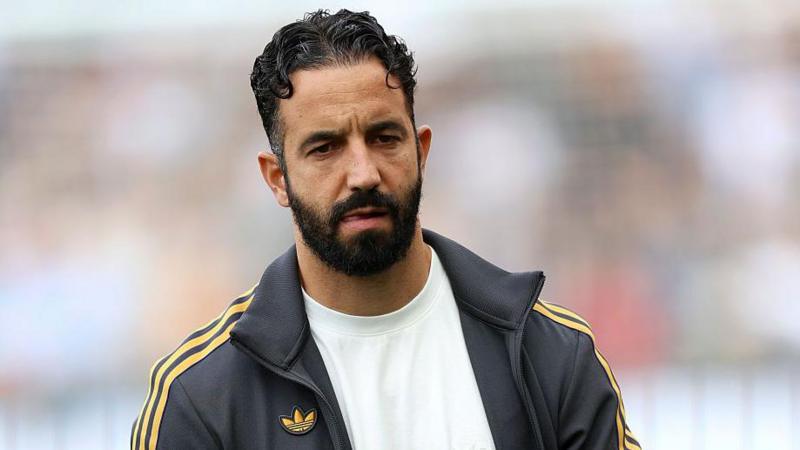Amorim's Struggle: Can He Bounce Back from Crushing Setback?




When Manchester United succumbed to a shock defeat at the hands of Grimsby in the EFL Cup, it wasn't just a knockout from the tournament; it felt like a heavy blow to the aspirations and moods of fans and critics alike. The disheartening performance has intensified the spotlight on the club’s relatively new manager, Ruben Amorim, whose tenure is now under more scrutiny than ever.
Ruben Amorim, a name synonymous with sharp tactics and a resilient managerial style during his time in Portugal, came to Manchester United with the hefty task of steering the club back to its former glory. While his strategic acumen and youth-centric philosophy were anticipated to inject much-needed vigor into the team, the recent upset against Grimsby has raised questions about his adaptive strategies in English football's challenging landscape.
Amorim's approach at his previous club, Sporting Lisbon, was vast and commendable. He transformed the team, broke the dominance of traditional giants, and clinched the Portuguese league title after a 19-year drought. It was this success that perhaps set expectations exceptionally high at Old Trafford when he replaced Erik ten Hag. However, the Premier League's competitive nature and the added pressures of managing a club as scrutinized as Manchester United are unlike any other.
This isn’t the first time a manager at Manchester United has faced criticism or pressure, but the club's historical context puts Amorim in a unique position. United hasn’t just been about winning; it’s been about winning with flair and dominance, a philosophy ingrained during Sir Alex Ferguson’s era. The challenge for any coach at United is not merely to secure victories but to win in a manner that aligns with the club's rich historical and cultural expectations.
The loss to Grimsby might seem a significant setback, but it could also be seen as a reality check. Manchester United's squad, despite possessing talents like Bruno Fernandes and Marcus Rashford, has displayed inconsistency in their performances. This suggests that the issues may be deeper rooted, involving squad depth, player form, and perhaps the adaptation to Amorim’s tactical demands.
In considering whether Amorim can steer the ship around, it's crucial to remember that football management is as much about psychology and player management as it is about tactics. Amorim's known for his excellent communicative skills and his ability to foster strong, cohesive units. These skills will be put to the test as he needs to uplift the team’s morale and build confidence back into a side shaken by unexpected defeat.
Looking forward, the real test for Amorim will be in how swiftly and effectively he can adapt to the demands of English football and manage the high expectations that come with leading Manchester United. The club does have the January transfer window approaching, which presents an opportunity for Amorim to make strategic signings to bolster the squad. Additionally, focusing on the club's young talents like Alejandro Garnacho and Facundo Pellistri could prove crucial in building a resilient team capable of long-term success.
United's fanbase and management are known for their high expectations but also their patience when they see a plan aligning with the club’s ethos and moving in a positive direction. If Amorim can harness the potential of his squad and gradually instill his philosophy, there is every chance that he could turn around this rough start.
In essence, the road ahead for Ruben Amorim is fraught with challenges but it also offers the opportunity to etch his name in Manchester United's rich tapestry. It’s a steep task, but history is often made by those who rise to meet the towering expectations, rather than buckle under them.